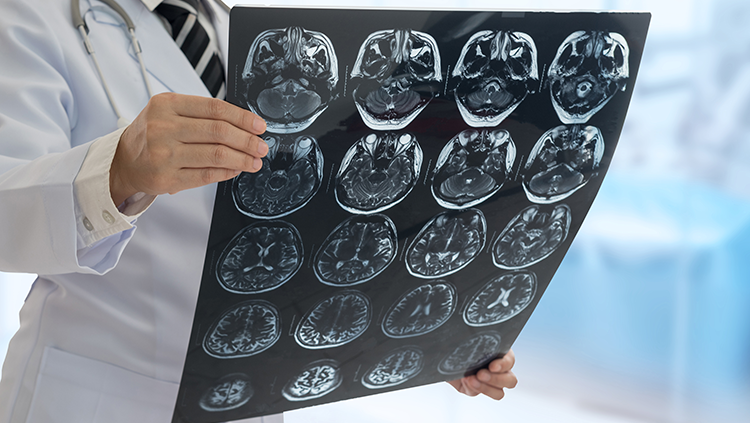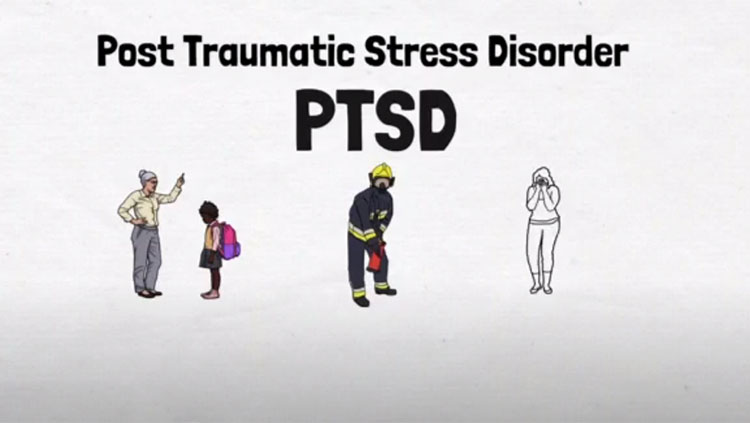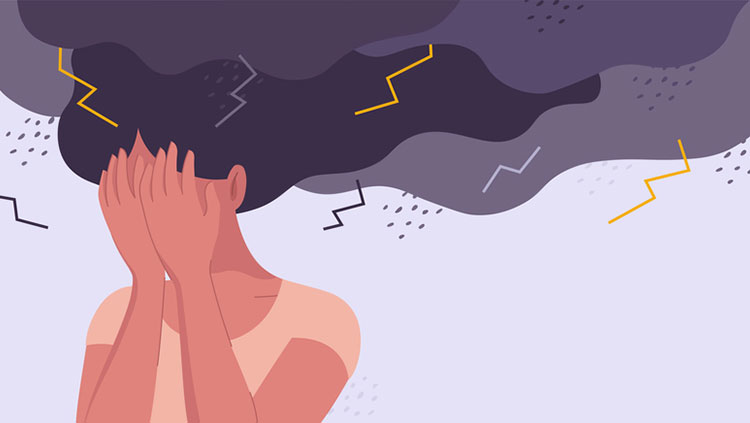What Is the Difference Between Neurological and Psychiatric Disorders?
- Published6 Jul 2018
- Reviewed6 Jul 2018
- Author Melissa Galinato
- Source BrainFacts/SfN

Think about the last time you visited your primary care doctor. Maybe you were concerned about wheezing, and, suspecting asthma, she referred you to an allergist. Or perhaps they suggested you visit a dermatologist to address particularly stubborn acne. Those are easy referrals for a doctor to make. But, suppose you told your doctor there might be something going on with your brain? Maybe you were unusually tired, or anxious, or forgetful. These symptoms might be harbingers of neurological or psychiatric disorders. So how does your doctor decide whether you need a neurologist or a psychiatrist?
Sometimes it’s not so easy to discern between neurological complaints and psychiatric ones.
Neurological disorders like Parkinson’s disease, Huntington’s disease, epilepsy, multiple sclerosis, and Alzheimer’s disease can be clustered together because they all involve malfunction of or damage to the nervous system — the brain, spinal cord, and nerves. Nervous system infections are also treated by neurologists. The hallmarks of psychiatric disorders, on the other hand, are disturbed behavior and emotional state.
While doctors ordinarily request a neurology consult when there are signs of problems with the central nervous system during a physical exam or in brain imaging results, psychiatrist Desiree Shapiro, an assistant clinical professor of psychiatry at the University of California, San Diego, describes the challenges faced by doctors when exams are normal.
“In the absence of these findings, a primary care provider might be faced with a difficult decision point when considering referral to a psychiatrist versus neurologist,” Shapiro says. “Common and vague symptoms such as fatigue, mood alterations, or memory changes will require additional history-taking and physical examination in order to elucidate the most appropriate referral.”
While neurological disorders involve damage to and degeneration of the nervous system, sometimes that damage can alter the communication between neurons. When it does, those changes can manifest themselves in problems with behavior, body control, memory, and mood. In other words, the same problems psychiatrists treat. That’s not surprising because most scientists believe problematic communication between neurons in our brains underpins psychiatric disorders.
Neuronal communication has been implicated in depression, behavioral problems, posttraumatic stress disorder, attention deficit hyperactivity disorder, and schizophrenia. These disorders can affect social interactions, mood, concentration, memory, and body control. “With their medical training, psychiatrists are skilled in addressing both the mental and physical contributors to mental illness,” Shapiro says.
She notes that sometimes it’s hard to classify a disorder and doctors do their best to find the right treatment. Both psychiatrists and neurologists have four years of training as medical doctors plus training in their specialties, and often, they work together to determine appropriate medications and therapies, she says.
Ultimately, the goal is to help the patient get the appropriate treatment. And, sometimes that means close collaboration.
CONTENT PROVIDED BY
BrainFacts/SfN
Also In Mental Health
Trending
Popular articles on BrainFacts.org


















